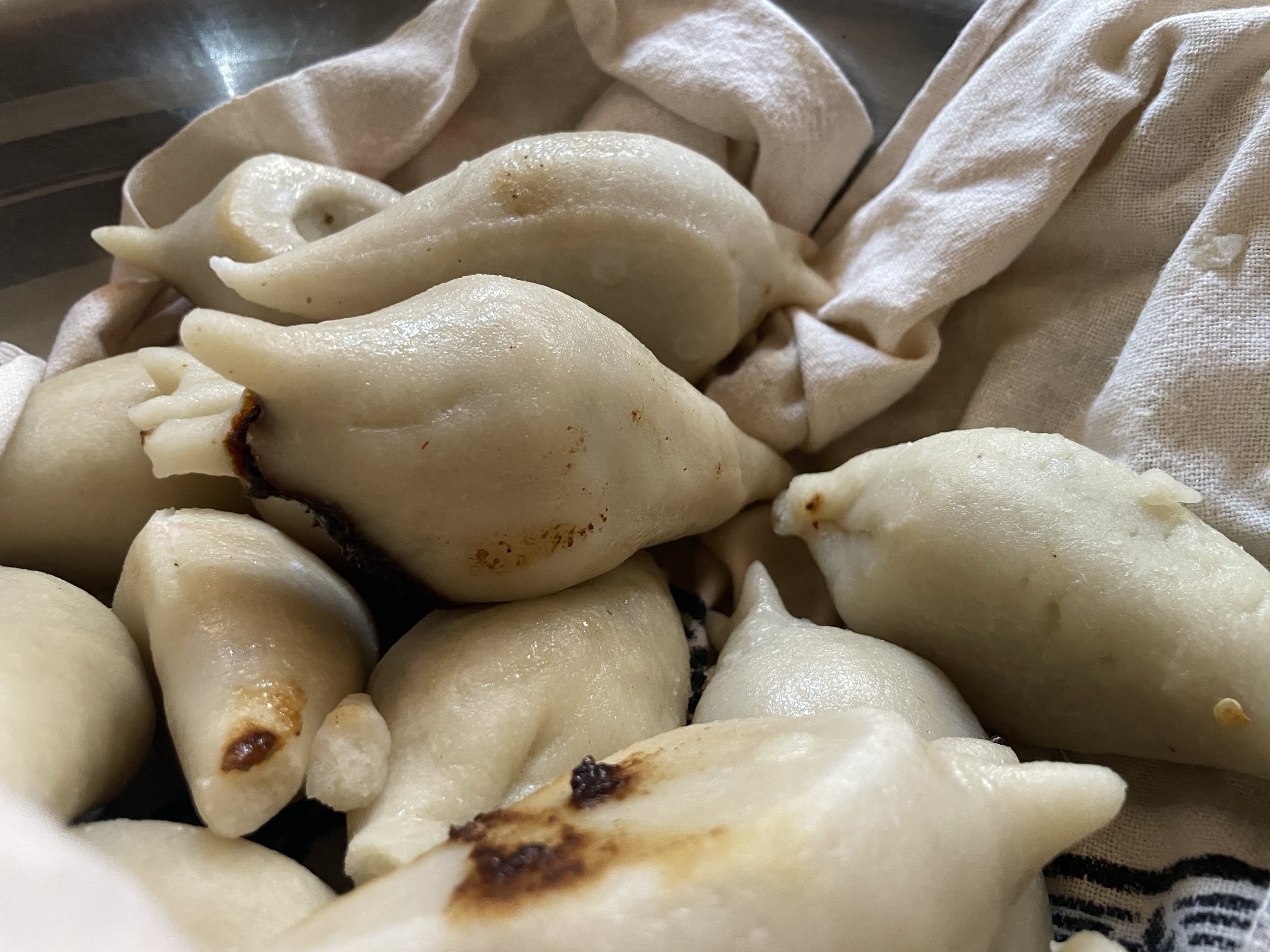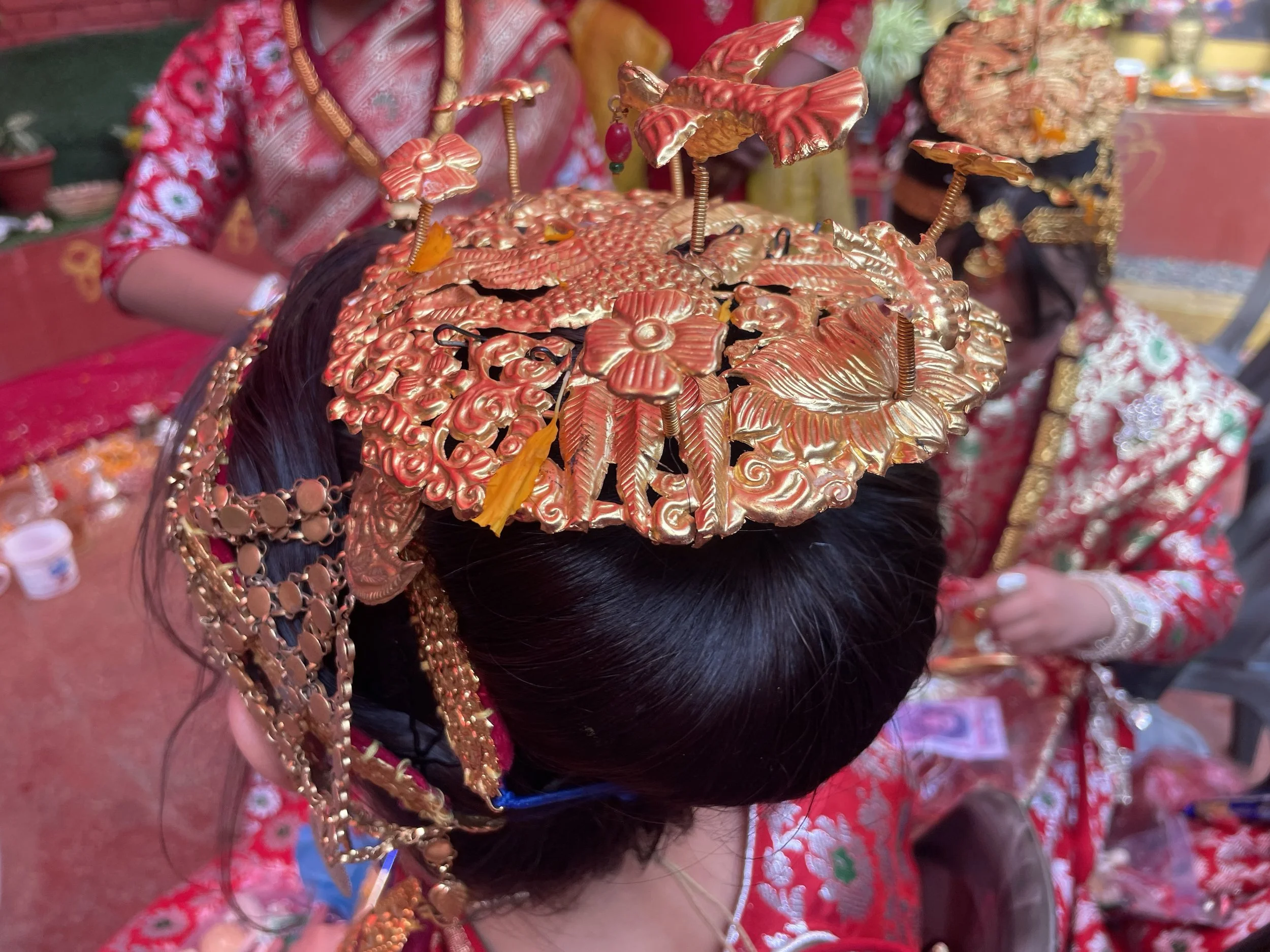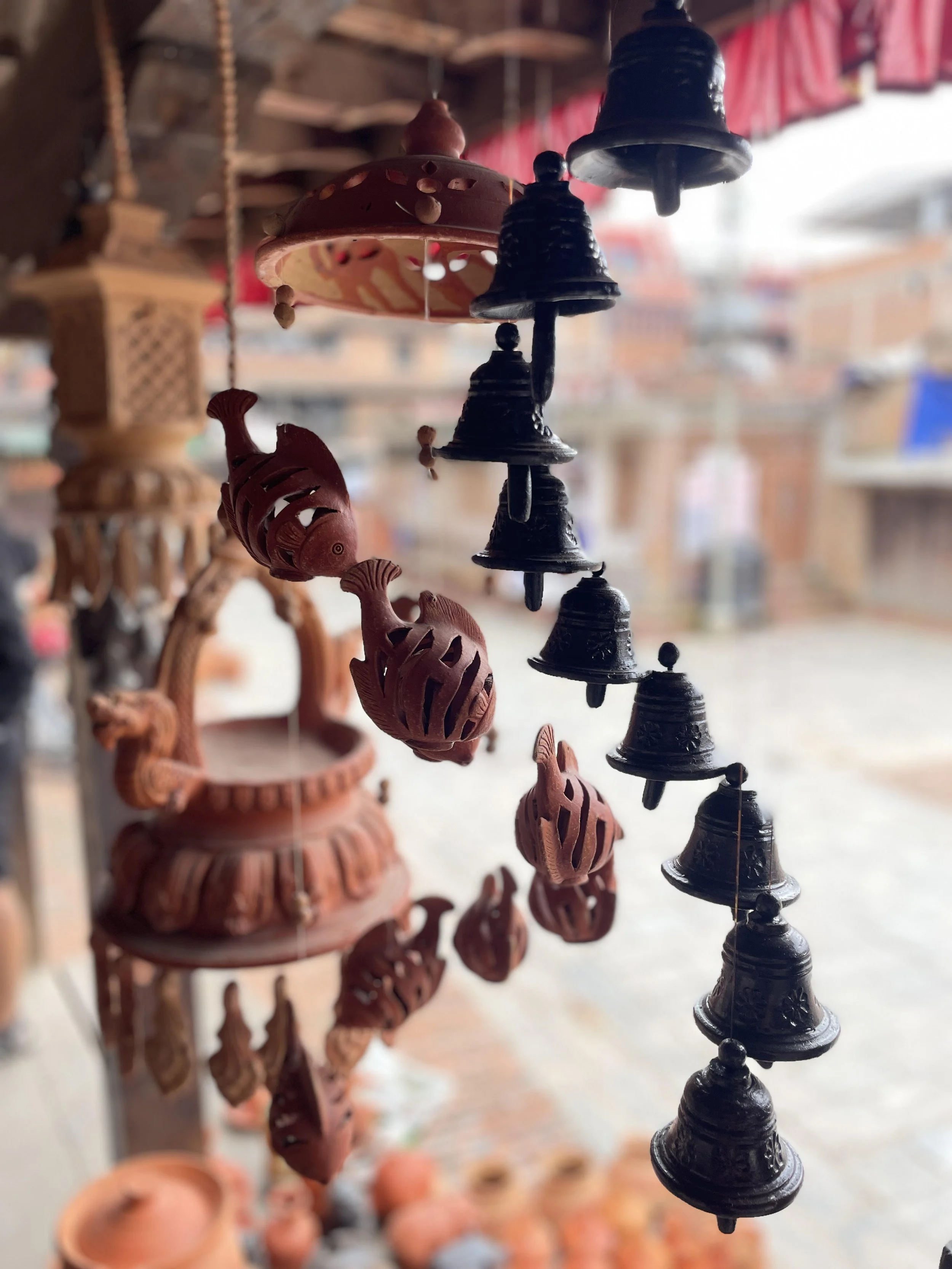Yomari Punhi: What a Newari Festival Teaches Us About Cultural Competence in Nursing
Today is Yomari Punhi, a cherished Newari festival which traditionally marks the end of the rice harvest. Families gather to make yomari: soft, steamed rice-flour dumplings filled with sweet chaku or khuwa. Elders teach children, and families and communities celebrate abundance and connection.
Beyond its sweetness, Yomari Punhi offers an important reminder for nurses:
culture shapes how people experience health, healing, and community.
Culture Shapes Care
Festivals like Yomari Punhi highlight how:
Food carries cultural meaning
Families express love and care
Seasonal rhythms influence daily life
Rituals support emotional and spiritual wellbeing
When nurses understand the cultural context of the people they serve, communication becomes clearer, trust grows, and care becomes more meaningful.
Cultural Competence Begins With Curiosity
You don’t need to know how to fold yomari to provide culturally informed care, but you do need openness and respect.
Traditions influence:
Food preferences during illness
Family roles in decision-making
Beliefs about birth, death, and healing
How people express pain, fear, or gratitude
What Yomari Punhi Teaches Us
Like sharing yomari strengthens family and community bonds, culturally competent care strengthens the nurse–patient relationship. When nurses honour cultural traditions:
Patients and families feel seen
Communication improves
Care becomes more effective
Trust becomes easier to build
These moments of cultural learning are just as important as any lecture or simulation.
A Sweet Reminder
As families across Bhaktapur prepare yomari today, we’re reminded that culture is living, dynamic, and deeply human. Cultural competence in nursing is the same; a practice built through curiosity, connection, and compassion.
Wishing everyone a warm and meaningful Yomari Punhi.
May we continue learning from the communities we serve, one tradition at a time.
Gufa: Learning Cultural Humility Through an Ancient Newar Rite of Passage
In the heart of Newar culture, there is a rite of passage called Gufa, a tradition rich with symbolism, history, and meaning. It is the third major milestone in a Newar girl’s life, and for centuries, families have practiced it with deep pride and devotion.
Recently, my own children completed their Gufa ceremony. I’ll admit, this tradition challenges me. But it also reminds me of one of the most important lessons in cultural competence:
Just because I don’t fully understand a practice doesn’t mean the practice is wrong.
Just because it’s unfamiliar to me doesn’t mean it lacks value.
And just because it sits outside my worldview doesn’t mean it deserves judgment.
Cultural competence begins where certainty ends and curiosity begins.
What Is Gufa?
Traditionally, a girl entering Gufa lives in seclusion for up to twelve days.
During this time:
She remains in a darkened room
She cannot see sunlight
She cannot see her own reflection
She does not interact with men AND men aren’t allowed to hear her
She receives care, protection, and ritual guidance from the women in her family
When the seclusion ends, she is led out with her head covered.
She first looks at her reflection in a pool of water, a symbolic moment of transformation, and then she looks at the sun, her ritual bridegroom.
From this moment forward, she is considered married to the sun, ensuring she is spiritually protected throughout her life.
Like many families balancing tradition with modern life, we participated in this ritual. My children remained in seclusion for one night instead of twelve, so they wouldn’t miss school or exams. But even in this shortened form, the meaning remains powerful.
When Culture Challenges Us: A Personal Reflection
As a woman who grew up in Western culture, parts of this tradition are challenging for me to process.
The symbolism of marrying the sun and the centuries-old expectations around marriage and womanhood; these concepts don’t align with the worldview I hold.
And yet:
Cultural competence means making space for complexity.
It means acknowledging the discomfort and choosing curiosity instead of judgment.
It means saying:
“I don’t fully understand this, but I want to.”
“This isn’t my belief system, but I respect the meaning it holds for others.”
“This tradition isn’t mine, but it isn’t for me to redefine.”
In the ceremony, I see something deeper than symbolism.
I see women protecting and guiding the next generation.
I see resilience woven through hundreds, even thousands, of years of history.
I see family, community, and continuity.
Culture isn’t always meant to be comfortable, but it is always meant to be honoured.
What Gufa Teaches Us as Nurses
As healthcare providers, we often encounter beliefs, rituals, or health practices that differ from our own. Cultural competence doesn’t mean adopting those beliefs. It means:
Listening without judgment
Asking thoughtful questions
Understanding the meaning behind practices
Recognizing our own cultural lens
Avoiding the assumption that our way is the default or superior way
Gufa reminds me that traditions exist within a broader context: historical, spiritual, social, and emotional.
We see the ritual, but families experience the meaning.
This is the kind of awareness that strengthens nursing care everywhere.
A Lesson in Humility, Respect, and Connection
Watching my children experience Gufa was deeply moving.
I didn’t agree with every aspect.
I didn’t fully understand every layer.
But that isn’t the point.
The point is participating with love, respect, and openness.
And that’s the heart of cultural competence:
We don’t have to agree with a tradition to honour it.
We don’t have to understand everything to respect it.
We simply have to stay humble, curious, and willing to learn.
Nepal has a way of teaching these lessons naturally, one tradition at a time.
Pottery Square: Where Clay, Culture, and Awareness Meet
Imagine stepping into a sunlit courtyard where clay pots dry in neat rows, potters spin their wheels with practiced rhythm, and the smell of fresh earth lingers in the air. That’s Pottery Square in Bhaktapur; it’s a place where tradition, patience, and craftsmanship come alive.
Why Pottery Square Matters for Nurses
Pottery Square isn’t just a beautiful space. It’s a reminder of how culture shapes daily life and how important it is for nurses to slow down, observe, and connect without assumptions.
Artisans work with simple tools but extraordinary skill
Generations pass down knowledge through practice, not textbooks
Community, creativity, and tradition are woven into everyday routines
For many nurses, this can become a moment of unexpected reflection:
What assumptions do we carry about our patients’ lives, knowledge, or beliefs?
Learning in Context
During our Cultural Competence CE Course, Pottery Square becomes an outdoor classroom. Surrounded by history and artistry, we experience how culture influences perspective, and how awareness of our own biases improves patient care.
More Than a Visit: A Shift in Perspective
You leave Pottery Square with more than photos. You leave with:
A deeper appreciation for cultural humility
A fresh understanding of how people learn, work, and create
A renewed intention to approach patients with curiosity, not assumptions
Bhaktapur teaches these lessons naturally, one handmade pot at a time.
Join Our Cultural Competence Course and experience Pottery Square through a nurse’s eyes.
Dengue: What You’ll Learn (and Why It Matters)
Image: “Insect Mosquito / Entomology Macro” by Erik Karits (Pixabay). Used under Pixabay Content License.
Every rainy season, millions face dengue fever, a mosquito-borne illness that can range from mild fever to life-threatening shock. For nurses, understanding dengue isn’t just about tropical medicine; it’s about prevention, education, and empathy in global practice.
Why Study Dengue in Nepal?
Nepal’s subtropical valleys provide an ideal classroom. Here, you’ll learn about vector control, patient education, and community response in real-world contexts.
Understanding dengue here means seeing how public health and cultural practices intertwine.
Course Teaser: What You’ll Learn
The dengue virus and its clinical stages
Recognizing early warning signs and complications
Patient teaching in low-resource communities
Outbreak control strategies
Cultural barriers to prevention
Beyond the Textbook
In Bhaktapur, we combine lecture, reflection, and discussion, all set against the historic backdrop of an ancient city right outside our front door. You’ll learn the science and also the stories behind it: how historic practices and limited resources shape care delivery.
Typhoid Mary: The Cook Who Stirred Up Public Health History
Picture it: New York City, early 1900s. The jazz age hasn’t arrived yet, corsets are still a thing, and hand hygiene? Not exactly a national obsession…
Enter Mary Mallon, an Irish immigrant with a knack for cooking, and a secret superpower (or super-problem): she could spread Salmonella typhi without ever getting sick herself.
Mary was the first documented asymptomatic carrier of typhoid fever in the U.S.
The Mysterious Trail of Typhoid
From 1900 to 1907, families across New York started falling ill: sometimes entire households. Investigators scratched their heads: clean water? Check. No spoiled food? Check. Then they noticed something strange.
Each outbreak had one cook in common.
When health officials finally tracked her down, Mary was not thrilled to be labeled “Typhoid Mary.” She felt fine, she was fine, and couldn’t believe she was being blamed for other people’s illnesses. But lab tests told another story: her gallbladder was teeming with Salmonella typhi.
Quarantine, Defiance, and a Dash of Tragedy
Public health officials quarantined her on North Brother Island, a small island off the Bronx. They released her after three years on the promise she wouldn’t cook again.
Spoiler alert: she went right back to cooking, under fake names. Old habits die hard, and jobs for women weren’t exactly abundant. Oh Mary…
When more outbreaks popped up, the authorities found her again. Back to North Brother Island she went, this time for good. Mary lived there for over two decades, until her death in 1938.
Why Nurses Still Talk About Her
It’s easy to think of Typhoid Mary as a villain, but her story sits at the crossroads of ethics, public health, and human rights.
She didn’t mean to harm anyone; she didn’t even know she was infectious, but her case changed how we think about:
Asymptomatic carriers
Infection control
Balancing individual freedom with public safety
Mary Mallon’s legacy lives on every time we wash our hands, wear PPE, or educate patients about transmission prevention.
A Modern Takeaway for Nurses
Whether we’re battling COVID-19, MRSA, or the next emerging pathogen, the lesson is clear:
Infection control starts with awareness
Carriers don’t always look sick
And sometimes, public health heroes wear scrubs
So, here’s to learning from the past, one head-strong, typhoid-carrying cook at a time.
From Classroom to Courtyard: Why Bhaktapur Is the Perfect Learning Destination
Bhaktapur, Nepal, offers the ideal blend of education, culture, and inspiration for nurses earning CE hours abroad. Here’s what makes it special.
Imagine finishing a morning class and stepping into a courtyard filled with ancient temples, hand-carved woodwork, and the scent of fresh clay from local potters. That’s Bhaktapur.
Why Bhaktapur?
UNESCO World Heritage City, rich in art, architecture, and culture
Peaceful, walkable setting ideal for study and reflection
Friendly locals and traditional cuisine
Close to Kathmandu, yet calmer
Learning in Context
Our meeting room is surrounded by history, and the learning continues outside. You’ll see how culture and healthcare intertwine in daily life.
More Than a Course: An Experience
When nurses return home, they bring back not just CE credits, but stories, friendships, and a renewed passion for caring.
How Cultural Competence Improves Nursing Practice Worldwide
Cultural competence isn’t just a buzzword, it’s a cornerstone of effective, compassionate nursing.
Understanding Cultural Competence
It’s the ability to communicate and provide care across diverse cultural and linguistic backgrounds. As global mobility increases, every nurse benefits from this skill.
Why It Matters
Reduces miscommunication and errors
Builds patient trust and satisfaction
Improves adherence with treatment plans
Strengthens team collaboration in diverse settings
Learning Through Immersion
The best way to develop cultural competence? Step into another culture.
In Nepal, you’ll gain first-hand insight into global care practices.
Start Your Journey
Our 3-day course helps nurses grow into culturally aware, confident global practitioners.
A Nurse’s Guide to Traveling and Learning in Nepal
Combining professional development with travel can sound daunting, but with the right program (and people!), it can be seamless and rewarding.
Arrival & Welcome
From the moment you land in Kathmandu, our team handles your airport pickup and transfer to Bhaktapur, your home for the 2-day course.
Where You’ll Stay
Our participants enjoy comfortable, locally owned guesthouses within walking distance of Bhaktapur’s iconic Taumadhi Square, home to the famous 5 Story Temple.
The Learning Experience
Days are a mix of engaging lectures and discussions; all focused on tropical illnesses and cultural competence.
Beyond the Classroom
In the evenings, explore Bhaktapur’s brick alleys, artisan shops, and cafes. After the course, join a guided cultural day tour to dive deeper into Nepal’s history and hospitality.
Why Nurses Will Love It
It’s more than a course! It’s a rejuvenating experience that blends education with personal discovery.
What Nurses Can Learn about Tropical Illnesses in Nepal
From Dengue to Typhoid, tropical diseases affect millions worldwide. For nurses, understanding these illnesses is essential in today’s global healthcare landscape.
Why Nepal?
Nepal offers unique exposure to tropical illnesses. Studying here provides real-world relevance, not just theory.
Key Topics in Our Course:
Dengue Fever
o Prevalence, transmission, global impact, clinical course, treatment, prevention
Typhoid Fever
o Prevalence, transmission, global impact, clinical presentation, treatment, prevention
Global Value for Your Practice
Even if you work outside tropical regions, this knowledge strengthens your adaptability and global awareness, which is essential for travel nurses and public health professionals alike.
Experience It Firsthand
International Nurse CE combines classroom learning with local context..
Top 5 Reasons Nurses Should Earn CE Hours Abroad
Earning continuing education hours abroad helps nurses grow personally and professionally. Here are five reasons to take your CE courses overseas — and why Nepal is a perfect destination.
Traveling abroad for continuing education isn’t just about earning CE hours, it’s about expanding your horizons as a healthcare professional. Here are five reasons every nurse should consider earning CE hours overseas:
1. Global Perspective on Healthcare
Nursing practices differ around the world. Global exposure to different cultures and customs allows nurses to experience diverse healthcare systems and new approaches to patient care.
2. Cultural Competence
Working with patients from different cultures and backgrounds requires sensitivity and understanding. Immersing yourself in another culture helps build this vital skill.
3. Networking Opportunities
Meet nurses and other healthcare professionals from around the world. These connections often lead to collaboration and lifelong friendships.
4. Renewed Passion for Nursing
Stepping out of routine can help reinvigorate your passion for nursing. Learning in a setting as historic and unique as Bhaktapur, Nepal, can be inspiring.
5. Personal Growth Through Travel
You’ll come home not only with 16 continuing education hours but with fresh energy, new confidence, and unforgettable experiences.
Ready to Learn Abroad?
International Nurse CE offers a 2-day course in Bhaktapur, Nepal, combining education, travel, and cultural exploration.










